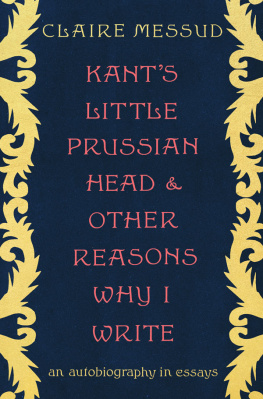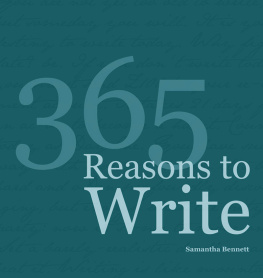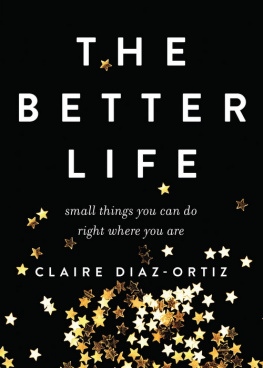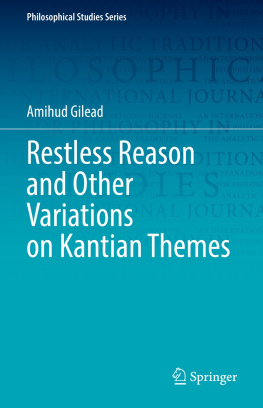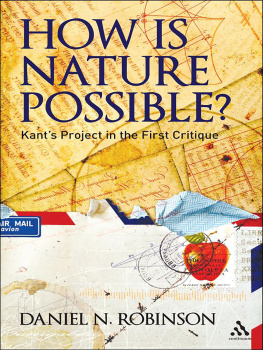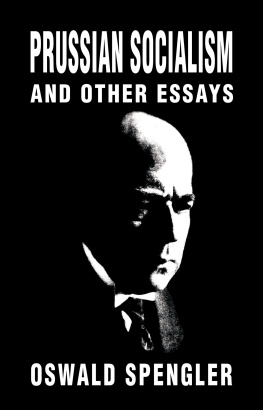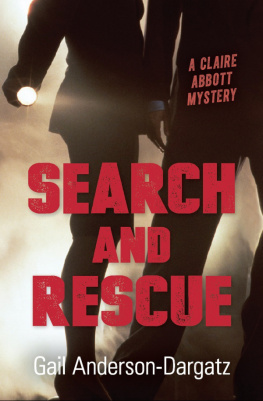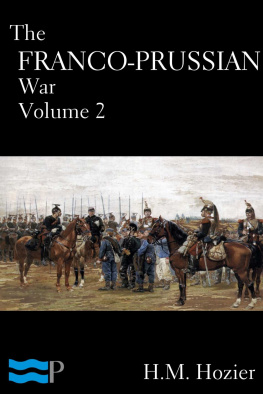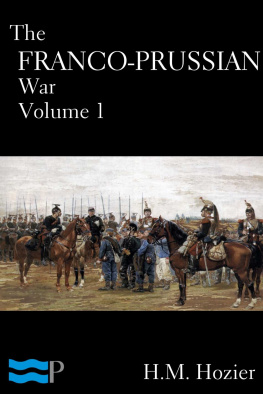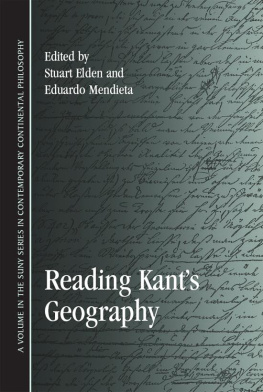Claire Messud - Kants Little Prussian Head and Other Reasons Why I Write
Here you can read online Claire Messud - Kants Little Prussian Head and Other Reasons Why I Write full text of the book (entire story) in english for free. Download pdf and epub, get meaning, cover and reviews about this ebook. year: 2020, publisher: W. W. Norton & Company, genre: Home and family. Description of the work, (preface) as well as reviews are available. Best literature library LitArk.com created for fans of good reading and offers a wide selection of genres:
Romance novel
Science fiction
Adventure
Detective
Science
History
Home and family
Prose
Art
Politics
Computer
Non-fiction
Religion
Business
Children
Humor
Choose a favorite category and find really read worthwhile books. Enjoy immersion in the world of imagination, feel the emotions of the characters or learn something new for yourself, make an fascinating discovery.
- Book:Kants Little Prussian Head and Other Reasons Why I Write
- Author:
- Publisher:W. W. Norton & Company
- Genre:
- Year:2020
- Rating:3 / 5
- Favourites:Add to favourites
- Your mark:
- 60
- 1
- 2
- 3
- 4
- 5
Kants Little Prussian Head and Other Reasons Why I Write: summary, description and annotation
We offer to read an annotation, description, summary or preface (depends on what the author of the book "Kants Little Prussian Head and Other Reasons Why I Write" wrote himself). If you haven't found the necessary information about the book — write in the comments, we will try to find it.
Kants Little Prussian Head and Other Reasons Why I Write — read online for free the complete book (whole text) full work
Below is the text of the book, divided by pages. System saving the place of the last page read, allows you to conveniently read the book "Kants Little Prussian Head and Other Reasons Why I Write" online for free, without having to search again every time where you left off. Put a bookmark, and you can go to the page where you finished reading at any time.
Font size:
Interval:
Bookmark:

The Burning Girl
The Woman Upstairs
The Emperors Children
The Hunters
The Last Life
When the World Was Steady

Prussian
Head and
Other
Reasons
Why I
Write

AN AUTOBIOGRAPHY IN ESSAYS
CLAIRE MESSUD

FRONTISPIECE: My father, Franois-Michel Messud, looking out to sea from the balcony of the family apartment. Algiers, November 1942.
The names and identifying characteristics of certain characters in this book have been changed.
Copyright 2020 by Claire Messud
All rights reserved
First Edition
Excerpt from October from Poems 19622012 by Louise Glck. Copyright 2012 by Louise Glck. Reprinted by permission of Farrar, Straus and Giroux.
For information about permission to reproduce selections from this book, write to Permissions, W. W. Norton & Company, Inc., 500 Fifth Avenue, New York, NY 10110
For information about special discounts for bulk purchases, please contact W. W. Norton Special Sales at specialsales@wwnorton.com or 800-233-4830
Jacket design by Jaya Miceli
Book design by Chris Welch
Production manager: Lauren Abbate
The Library of Congress has cataloged the printed edition as follows:
Names: Messud, Claire, 1966 author.
Title: Kant's little Prussian head and other reasons why I write : an autobiography in essays / Claire Messud.
Description: First edition. | New York, NY : W. W. Norton & Company, [2020]
Identifiers: LCCN 2020018802 | ISBN 9781324006756 (hardcover) | ISBN 9781324006763 (epub)
Subjects: LCSH: Messud, Claire, 1966 | Novelists, American20th centuryBiography. | Novelists, American21st centuryBiography.
Classification: LCC PS3563.E8134 Z46 2020 | DDC 813/.54 [B]dc23
LC record available at https://lccn.loc.gov/2020018802
W. W. Norton & Company, Inc., 500 Fifth Avenue, New York, N.Y. 10110
www.wwnorton.com
W. W. Norton & Company Ltd., 15 Carlisle Street, London W1D 3BS
For FMM, MRM & DM, whove gone before;
for ECM; and, as ever, for JW
you are not alone ,
the poem said
in the dark tunnel.
LOUISE GLCK, OCTOBER
A s this collection goes to press, we are living through the COVID-19 pandemic, a period of intense suffering and loss for many, and for all a radical disruption of life as we have known it. In a few months time, our situation will have evolved further; we cant yet know what our world will look like, nor in what ways it may have been irrevocably altered. What is certain is that the breathless hurtling of the past decade has been halted, at least temporarily, and that, as individuals and as a society, we are forced to reassess our priorities, our commitments, and our actions. Shocking disparities are laid bare that exacerbate the suffering of the most vulnerable. In the midst of trauma, there arises the possibilityby no means a likelihood, but wonderfully, the possibilityof positive change. We have the chance to rebalance not only our social but also our personal lives in hopeful ways, to work toward a more optimistic future.
What do I mean? The protagonist of Valeria Luisellis recent novel Lost Children Archive observes that something changed in the world. Not too long ago, it changed.... We feel time differently.... Perhaps its just that we sense an absence of future, because the present has become too overwhelming, so the future has become unimaginable. On first reading this passage, early in 2019, I felt a bleak thrill of recognition; and then the question: Have we truly lost our future?
This overwhelmingness of which Luiselli writes has been a widespread experience of the last five or ten technologically dominated years. It is a terrible fate for human beings, distinguished from other animals precisely by our ability to conceive of the passage of time (as well as by a capacity for laughter, lets not forget): to lose our sense of a plausible future is to lose our humanity itself. It is to lose that thing with feathers called Hope, of course, released from Pandoras Box, and to be left instead only with the travails and misery that crowded around her. It is to lose our sense of purpose; to be enveloped in futility; to countenance defeat. In planetary terms, we live now, according to scientists, in the epoch of the Anthropocene, when mans folly has ensured the decline, if not the demise, of our beautiful Earth, and certainly of our way of life upon it. And yet: the COVID crisis has shown how dramatically pollution can be reduced overnight, by a change in human behavior.
In recent years, the dignity of small lives and small gestures has risked being lost: if not intended for an audience of thousands, or millions, communication has been routinely reduced to the abortive nubs of texts and emojis; and if it is for an audience of thousands or millions, communication tends to be visual or aural rather than verbal, because what millions can be bothered with profundity, sophistication, or subtlety? Who has the time to spare to read something that might require a little extra effort? And yet: the COVID crisis has revealed us to be capable of old-fashioned connection, and accounts abound of generous communication between neighbors and friends. Individuals and groups have found ingenious ways to stay connected in spite of social distancing; we have so swiftly remembered what it means to look out for one another.
We have lived in a nationno, an era; because not only this nation but much of the world has suffered from these illscrippled by our devotion to capitalism (I teach at an excellent university, from which 40 percent of the graduates go into finance: the shocking waste of fine minds on the pursuit of Mammon), beleaguered by hopelessness (what is the opioid epidemic if not the symptom of a people duped by false dreams, and wholly without faith in their personal futures?), and by rigorous utilitarianism (formed by a late capitalist mind-set, we ask always, Whats in it for me? and eschew the ostensibly purposeless that is, in fact, our source of wisdom and of joy). We have inhabited a time and place in which falsehood and truth are fatally commingled (how many lies does our president utter in a day?); in which our ideals appear shattered and abandoned (leaders like priests and coaches are unmasked as predators, while our politicians prove corrupt and self-interested); and in which any sense of self is daily assaulted and abused by advertisers (whether corporate or individual, because what is an Instagram influencer if not a self-advertiser?).... In short, recent years have been, through a certain broad lens, a dark maelstrom, a hellscape from Hieronymus Bosch, in which, under the guise of the pursuit of pleasure, individuals are tortured, dehumanized, discarded, destroyed.
This ominous hurtling, the relentless ouroboros that is social media, the destruction of ourselves and our environswe had come to see it as inevitable, and ourselves as the passive and ineluctable victims of forces beyond our control. Humanity has risked collective despair, than which there is no more certain doom for our planet and ourselves. But even in the past two months, although at the mercy of a ravaging virus, we have discovered that in other ways we arent disempowered. Crisis and extremity are by no means to be desired; and their consequenceshuman and economic bothwill be challenging for the foreseeable future. But these extraordinary times have also forced us to slow down, to think collectively, to seek hope, to value the truth, and to celebrate resilience and faith in our fellow human beings.
Font size:
Interval:
Bookmark:
Similar books «Kants Little Prussian Head and Other Reasons Why I Write»
Look at similar books to Kants Little Prussian Head and Other Reasons Why I Write. We have selected literature similar in name and meaning in the hope of providing readers with more options to find new, interesting, not yet read works.
Discussion, reviews of the book Kants Little Prussian Head and Other Reasons Why I Write and just readers' own opinions. Leave your comments, write what you think about the work, its meaning or the main characters. Specify what exactly you liked and what you didn't like, and why you think so.

